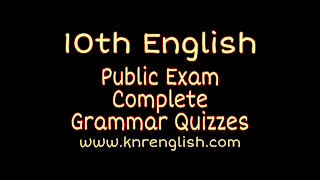Acquire - To gain or obtain knowledge, skills, or possessions.
Ambiguous - Having more than one possible meaning or interpretation.
Analyze - To examine or study something in detail.
Application - The act of putting something into operation or use.
Articulate - To express thoughts or ideas clearly and coherently.
Bias - A preference or inclination, often unfair, that influences judgment.
Comprehend - To understand or grasp the meaning of something.
Connotation - An idea or feeling that a word invokes in addition to its literal or primary meaning.
Contradict - To assert the opposite or deny the truth of a statement.
Correlate - To establish a connection or relationship between two or more things.
Deduce - To reach a conclusion based on reasoning or evidence.
Depict - To represent or describe something in words or images.
Distinguish - To recognize or identify the differences between things.
Elaborate - To add more detail, often in order to explain or clarify something.
Empirical - Based on observation or experience rather than theory or pure logic.
Enhance - To improve or increase the quality, value, or extent of something.
Evaluate - To assess or judge the quality, importance, or value of something.
Exemplify - To serve as a typical or representative example of something.
Hypothesis - A proposed explanation or theory that is yet to be tested or proven.
Illustrate - To provide examples, evidence, or a visual representation to make something clearer.
Inference - A conclusion reached based on evidence and reasoning.
Integrate - To combine or incorporate separate elements into a unified whole.
Interpret - To explain the meaning or significance of something.
Justify - To provide reasons or evidence in support of an action, belief, or decision.
Paradigm - A typical example or model of something.
Plausible - Seemingly reasonable or likely, but not necessarily true or accurate.
Precise - Exact, accurate, or clearly defined in terms of meaning or scope.
Proponent - A person who supports or advocates for a particular idea or cause.
Refute - To prove a statement or theory to be false or incorrect.
Relevant - Closely connected or applicable to the matter at hand.
Replicate - To duplicate or reproduce something.
Resemble - To be similar or bear a likeness to something or someone.
Revise - To amend, alter, or modify something, especially written material.
Skeptical - Having or showing doubt or questioning attitude towards something.
Subsequent - Following in order or succession; coming after something else.
Synthesize - To combine different elements or ideas to form a coherent whole.
Undermine - To weaken or diminish the effectiveness, power, or authority of something.
Verify - To confirm or establish the truth or accuracy of something.
Versatile - Able to adapt or be used for various purposes or in various ways.
Vigorous - Strong, energetic, or forceful in nature.
Viable - Capable of working successfully or being implemented effectively.
Widespread - Existing or happening over a large area or among many people.
Yield - To produce or provide a result, effect, or outcome.
Zeal - Enthusiasm, passion, or fervor for something.
Diverse - Showing a great deal of variety or difference.












No comments:
Post a Comment